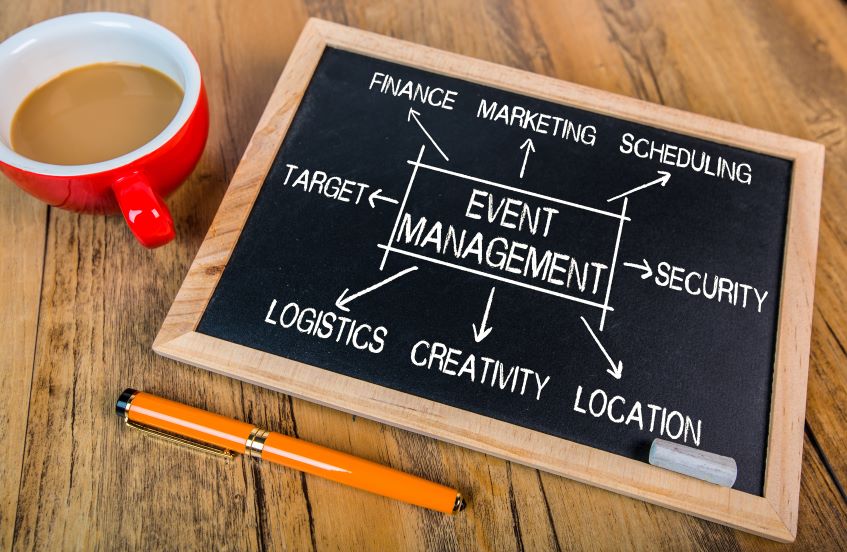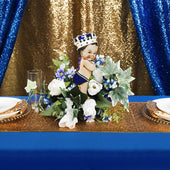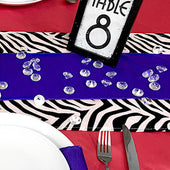Learning how to organize a seminar or an event requires patience and carefully doing each step of your plan to pull off a successful gathering.
As an organizer, you have to take into account everything and everyone involved in the seminar, especially your special guests, which are the speakers. The speakers will be the heart of the event and are the reason why the guests will come and join the seminar. Treating them as a VIP is essential since they are actually the most important people expected on that day.
Next, you also need to consider the attendees and guests and make them feel comfortable, especially on an occasion where they plan to learn something new.
As for the details, we will discuss below the steps you need to take on how to host a convention and the things you need to consider when you want to learn how to organize a conference.
What To Consider When You Want To Know How To Organize A Seminar
1. Thinking of a Theme

A business event is where companies and businesses gather together to discuss, trade and conduct business with each other who are all in the same industry.
Picking a theme is crucial to bring everything together and set the mood for the guests, participants, speakers, and sponsors to publicize their products and/or services.
When picking a theme, make sure that it is relevant to the industry that the occasion is for so that everyone will feel comfortable with whatever will transpire during the said day.
To have an idea of where to find all the event linens and supplies for a seminar, check out the CV Linens website. We offer affordable bulk table runners and a wide variety of cloth napkins sold in bulk. As for the table setup, you can also purchase sequin tablecloths, wedding charger plates, and satin tablecloths at very reasonable prices. It is a one-stop shop for all the supplies you’ll need.
2. Determine The Objectives

When learning how to plan a successful conference, you need to remember your event's objective. This will help you think of things you need to do and prepare for the occasion to be prosperous.
Be organized and jot everything down from the small details to the most important and obvious ones.
You should also determine what topics are suitable for the audience and theme, think of the general tone of the seminars, what you intend the audience to learn, and key messages you want the people to take home.
3. Define You Budget

Learning more about your budget will help you determine where to put the bulk of the finances while still making it comfortable and enjoyable for all attendees. This step is essential when you’re learning how to organize a seminar or an event.
List the most important ones and prioritize the elements that need more attention and will more likely be utilized by everyone attending the event.
While figuring out the budget, make a forecast of what you might need in case of an emergency.
If making budget cuts, think of how it might affect the occasion before proceeding. This will help you determine if you’re making the right decision in terms of spending.
4. Select A Date

Determine the date when you intend the seminar to take place. As a rule of thumb, choose two dates – one as a backup – in case what you initially planned doesn’t materialize.
5. Pick the Appropriate Venue

Picking a venue is also crucial since you have to consider attendance as well. For small industries that expect a little over 100 attendees, you can consider a smaller venue to bring everyone together.
For larger crowds who are expecting thousands of attendees, you might want to consider conference halls or convention centers to accommodate tables for dinner, a stage for the speakers, and possibly booths for exhibitors.
6. Marketing

Marketing and event planning seminars are the most crucial part of holding a grand gathering. A successful marketing campaign can spell a difference in the event's success.
Momentous happening like conferences, seminars, and exhibitions, are after all planned to make a profit. So gathering sign-ups and a ballpark headcount is important so you’ll know how many people to expect on the day of the conference.
Capitalizing on online marketing is a huge help. Plus, putting out posters and banners, and handing out flyers are great ways to boost the marketing of the event.
7. Finding Sponsors

Somehow related to marketing, looking for potential sponsors who can fund the event can help make the occasion come to life.
Not only can they help financially but getting sponsors can boost the credibility of the affair and help with spreading the word to more people.
8. Contact The Speakers

A conference will be nothing without speakers. As mentioned before, they are the heart of an event like this, and securing their attendance is the top priority.
When picking out the speakers, choose the best in the industry who you think will contribute the most knowledge regarding the theme and cause of the event.
Work with them on their presentations and check if they have any special requests or requirements, such as microphones, music (if needed), projectors, or extra monitors.
9. Gather Help

Organizing and learning how to organize a convention is not a one-person job. Delegate tasks to different people who you can trust so that everything can run smoothly.
10. Prepare For The Big Day

Most of the work as an event coordinator and organizer is the preparation. The event itself will run on its own, especially if everything is well planned and prepared.
On the day of the conference, make sure that everything is ironed out. If you still have time, take time to run through the entire schedule so if you encounter any issues, you can still troubleshoot it before the actual event.
Learning how to organize a seminar or an event takes a lot of organizational skills. But once you have planned out everything perfectly, everything should fall into place.
This is key for everyone to enjoy and have a fruitful time.
Don’t forget to check out our blog, YouTube channel, Pinterest, and Instagram page for other tips and how-to’s when organizing different events.






















































































































































































































